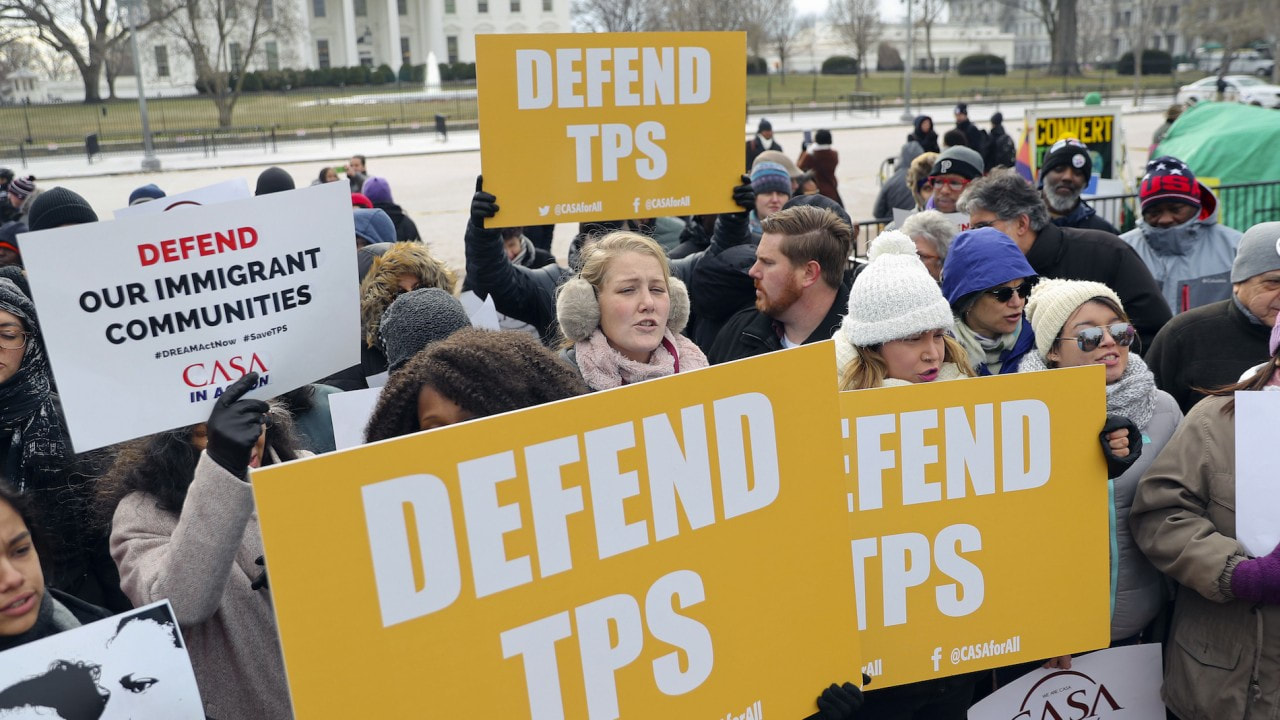The US says it’s ending El Salvador’s TPS status. Let’s play a game of good slant / bad slant.1/10/2018
Soon after the Department of Homeland Security announced its decision to terminate El Salvador’s Temporary Protected Status (TPS) designation, news outlets published one-sided articles, suggesting the effects would either be largely problematic or largely beneficial. As you might guess, outlets like The Washington Post suggested it’d be bad and outlets like Breitbart suggested it’d be good. The thing is, they didn’t do it strictly with data. Let’s play two rounds of “Good slant / bad slant” to show you what we mean. Round 1: The negative slant. It’s not the same to say this… The Trump administration’s decision to eliminate residency permits for some 200,000 Salvadoran migrants could cause far-reaching disruptions in the small Central American country, including a steep decline in remittances from abroad and a destabilizing wave of returning citizens to a homeland still racked by violence, according to immigration experts and Salvadoran officials. (The Washington Post) …as it is to say this… As many as 200,000 Salvadorans currently residing in the U.S. could return to their country, which would decrease its more than $4.5 billion in remittances annually that make up about 17 percent of El Salvador’s GDP, according to the World Bank. El Salvador has some of the highest murder rates in the world, with one estimate ranking it in second place with 64.2 murders per 100,000 population annually. What’s the difference? Spin. In other words, the Post uses subjective, emotional and vague language to describe problems that could come from the decision. Here, spin shapes our impression of the problem, but it’s anyone’s guess how “steep” the decrease in remittances might be, or how “racked” El Salvador is by violence. As for the “far-reaching disruptions,” the spin is so vague there that we’re not really sure what to do with it. Saying it with data gives us something measurable, something we can all understand to begin debating the issues. Round 2: The positive slant. It’s not the same to say this… The cheap-labor policy has also reduced investment and job creation in many interior states because the coastal cities have a surplus of imported labor. For example, almost 27 percent of zip codes in Missouri had fewer jobs or businesses in 2015 than in 2000, according to a new report by the Economic Innovation Group. In Kansas, almost 29 percent of zip codes had fewer jobs and businesses in 2015 compared to 2000, which was a two-decade period of massive cheap-labor immigration. (Breitbart) …as it is to say… Wait a minute! How exactly do the above statistics relate to what Breitbart calls “the cheap-laborpolicy” or the “Washington-imposed economic policy of mass-immigration”? That’s right, those terms in red are also spin. What’s the difference? Implication, oversimplification and possibly faulty reasoning. In other words, Breitbart cites various economic and labor statistics to suggest immigrants are to blame for the country’s economic problems (and apparently other problems as well). In the example above, the outlet implies immigrant labor caused investment and job creation to be reduced in “many” interior states. Were no other factors involved at all? Surely it can’t be that simple. (Economics rarely is!) The truth of the matter is, assuming this TPS decision moves forward without measures by Congress or decisions from the judiciary branch (which, by the way, was a perspective none of the outlets we analyzed explored), there will likely be upsides and downsides. Having data to examine what those effects may be is not only useful, but necessary. As readers, we can’t work with a problem efficiently if things like spin, implication and oversimplifications are in the way. That’s like the difference between a doctor giving you a precise diagnosis or telling you you’re in “really bad shape.” The government’s decision on El Salvador’s TPS designation may indeed present a number of problems, so let’s get the data first and work from there. Comments are closed.
|
Jens Erik GouldJens is a political, business and entertainment writer and editor who has reported from a dozen countries for media outlets including The New York Times, National Public Radio and Bloomberg News Archives
February 2018
Categories
All
|

 RSS Feed
RSS Feed